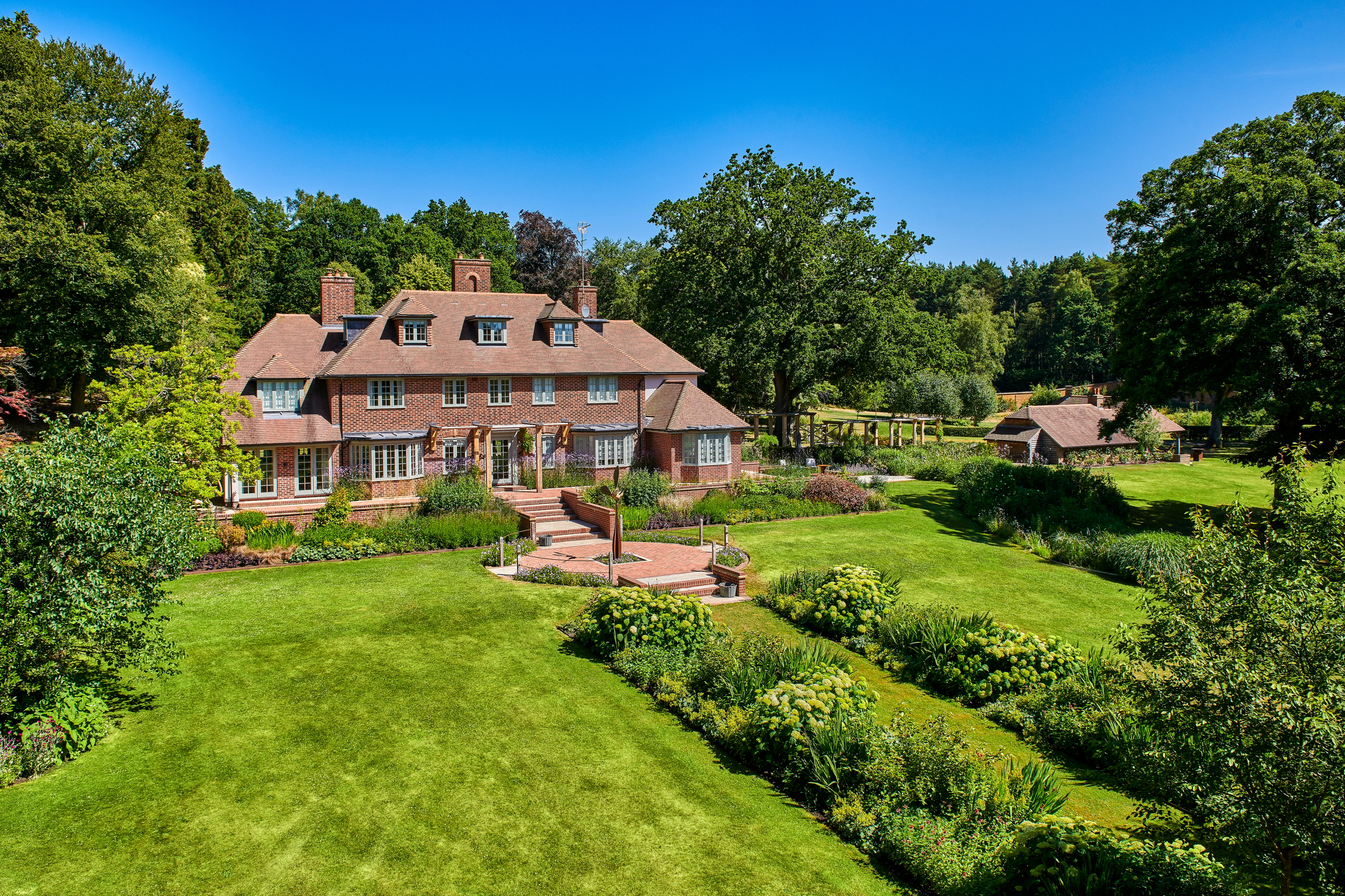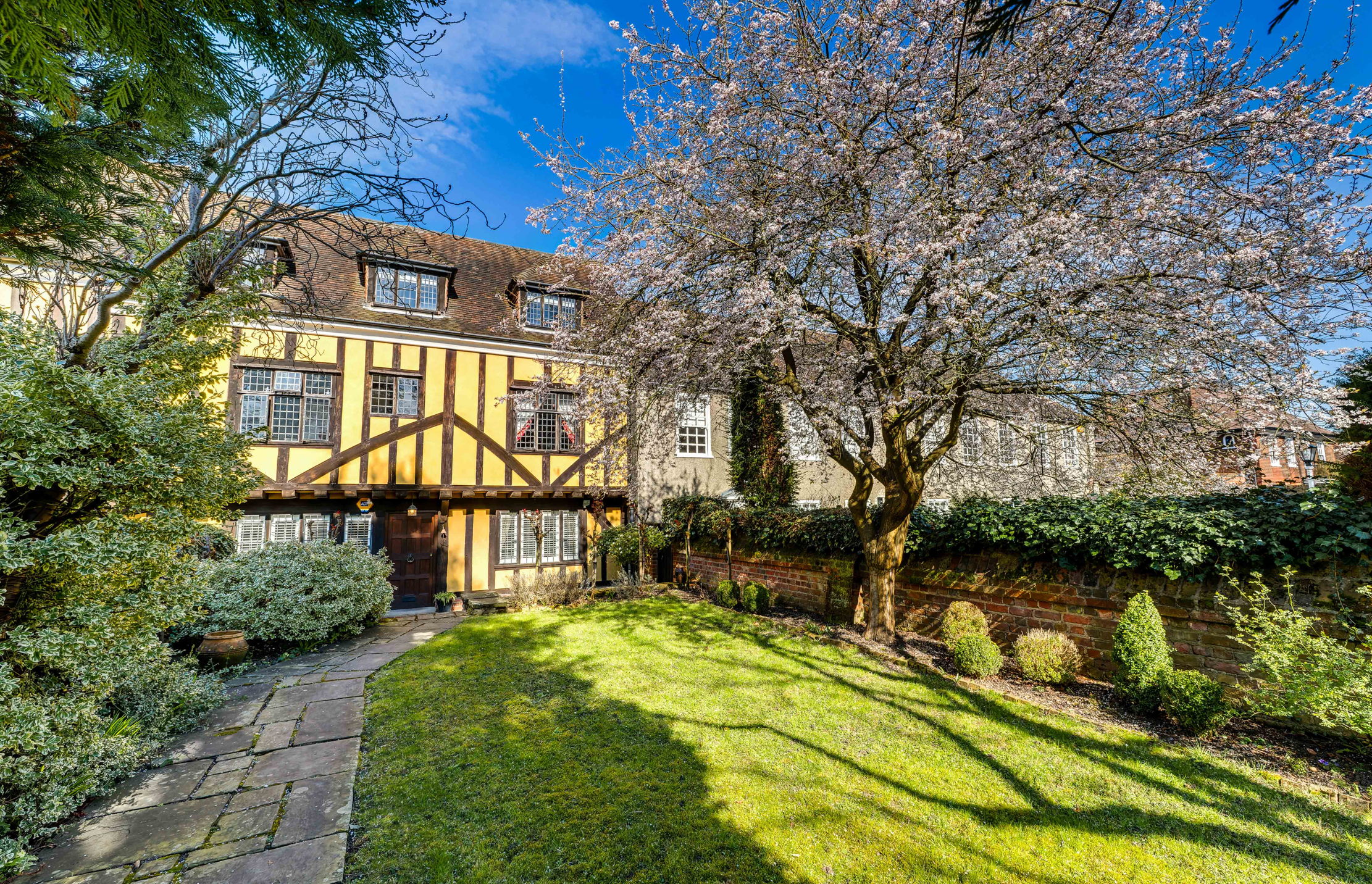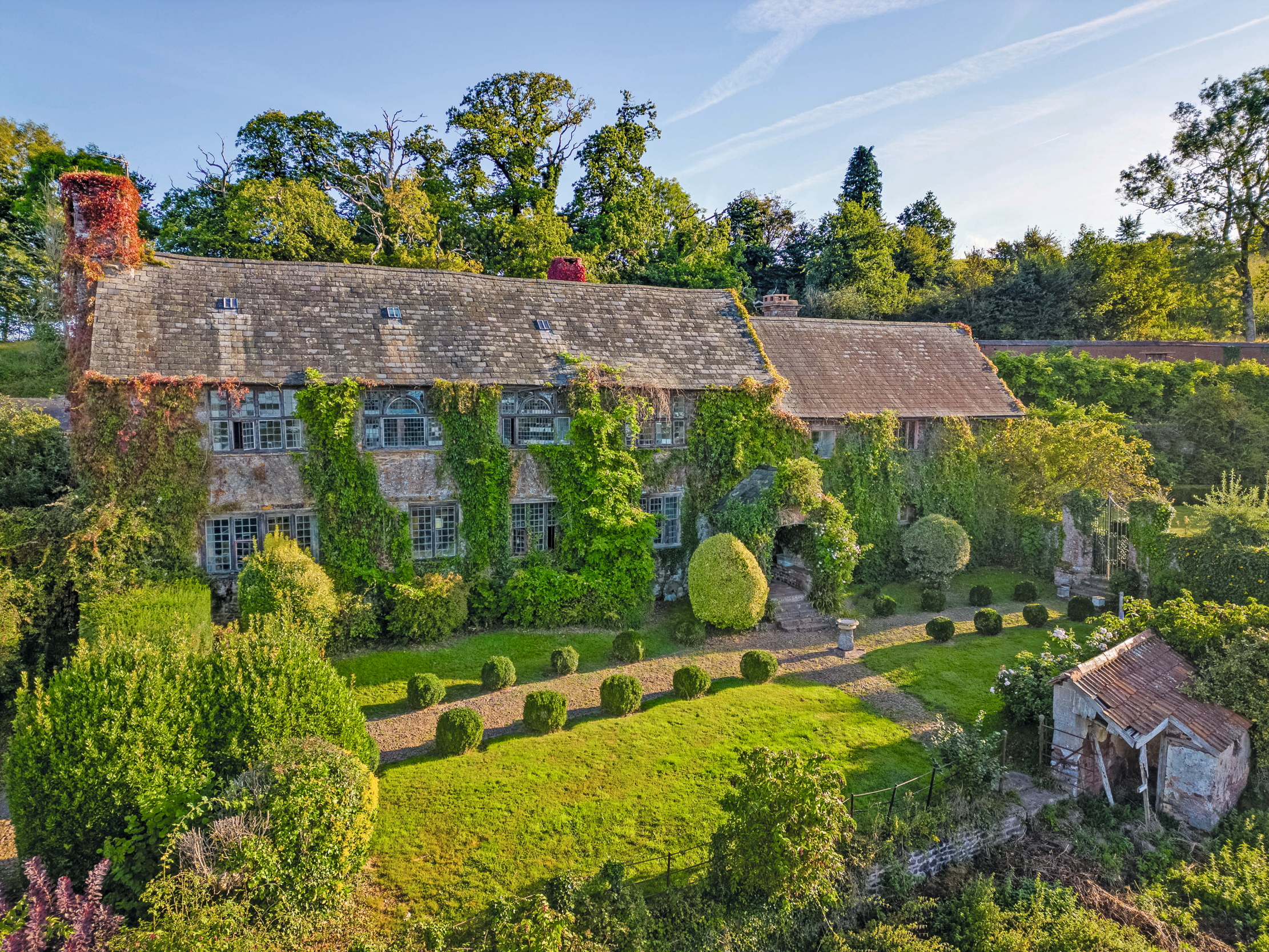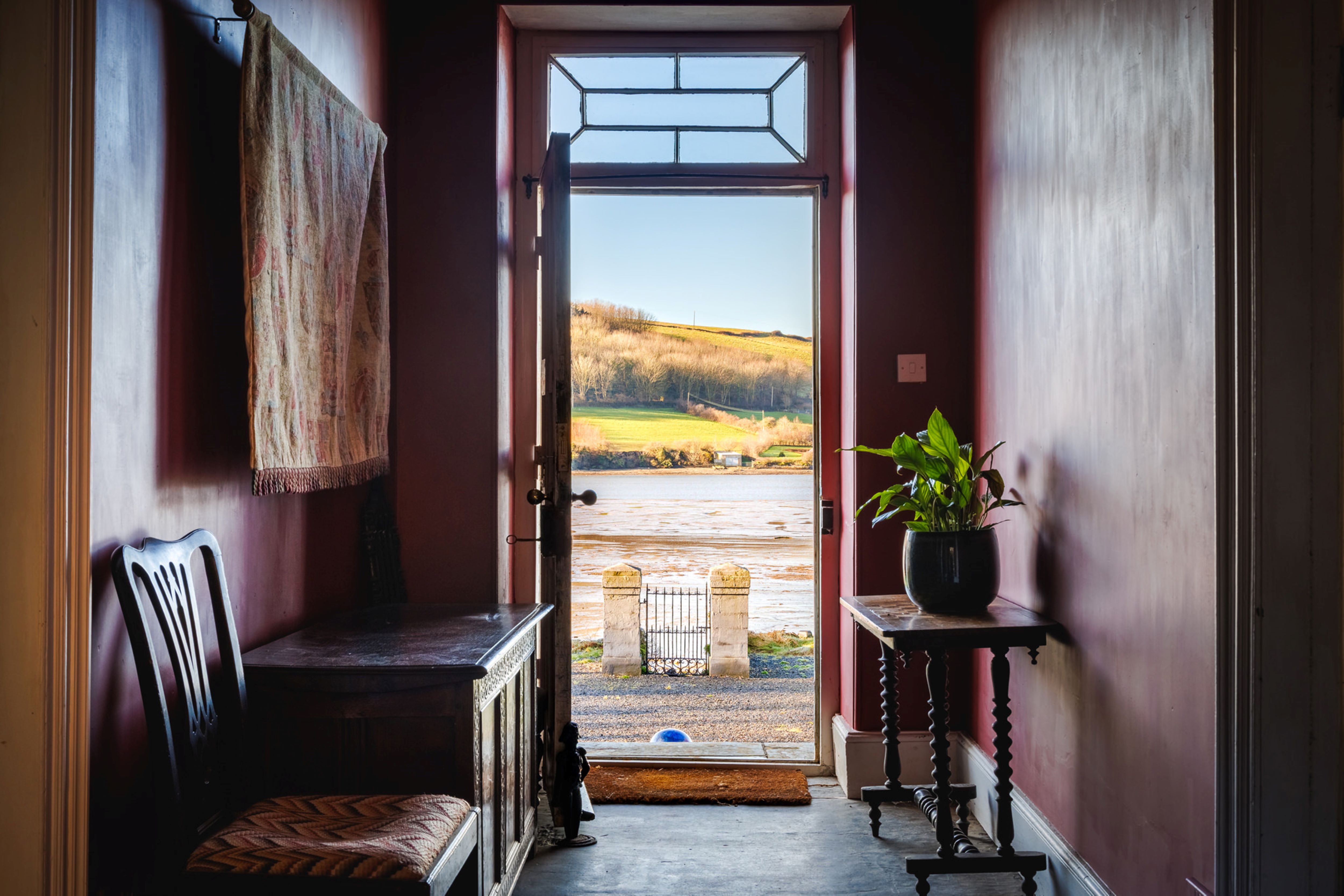Two-thirds of us buy a house and immediately set about refurbishing it
We spend more buying our houses than on anything else in our lives — yet the first thing we do on moving in is set about changing the place. Annabel Dixon takes a look at what we do and why.


Is it the need to bag a bargain? Is it the desire to make your own mark? Or is it having grown up as part of a generation whose first awareness of the property market was probably being forced by their parents to watch Sarah Beeny or Phil and Kirstie? No matter the reason, it seems that we’re a renovation-obsessed nation. Figures from Zoopla show that two-thirds of new house owners renovate their homes within the first two years.
It's easy to believe. Whether we’re slathering Farrow & Ball shades on our walls (‘Dead Salmon’, anyone?), fixing a dodgy boiler (no thanks), or grappling with the overhaul of a glorious but dilapidated listed property, few of us these days are happy to just live in a house and keep things exactly as they are. And that’s entirely natural: property is both your home and — unless you’re in to buying private jets or custom Rolls-Royces — the biggest investment you’ll ever make. Why wouldn’t you want to keep it in good nick?
For those buying older houses change can be enforced by the state of repair, so it’s no surprise to see 71% of buyers taking on an older property make changes. Yet it’s not just them: Zoopla’s survey reveals that 41% of homeowners who snapped up a modern property also got busy made improvements within their first two years.
As for the most popular things to change, modernising features was on the list for 47% of homeowners, while improving energy efficiency (26%), increasing the property’s re-sale value (22%) and fixing dreaded structural defects (15%) all figured.
But in these challenging economic times, cheaper improvements were the most popular. Painting and decorating came up top, with 57% of homeowners tackling it at an average cost of £2,495. Garden revamp (34%), new bathrooms (32%), new kitchens (30%) and new boilers (27%) were also high on the list of priorities.
‘It’s clear that an Englishman's home is still very much his castle with buyers demonstrating a clear demand to renovate and add their personal touch to their home despite soaring material and building costs,’ said Daniel Copley, Zoopla’s consumer expert.
Best months to list your home for sale revealed
Sign up for the Country Life Newsletter
Exquisite houses, the beauty of Nature, and how to get the most from your life, straight to your inbox.
Want to boost your chances of a successful sale? Best get a wriggle on, with February and March typically the best months to hoist a ‘For sale’ sign on your home.
According to Rightmove, nearly seven in 10 homes listed for sale in February and March go on to complete - more than any other month.
But if you’ve missed the boat, April and January are the next best months to list a home for sale, based on the likelihood of getting the transaction over the line.
But if it’s a quick sale that you’re after, then mark January and February in your diary. Homes listed for sale during these two months tend to find a buyer in 51 days. They’re closely followed by March and April (52 days).

Base rate cut could ‘send positive ripples through the market’
In a widely-expected move, the Bank of England’s Monetary Policy Committee (MPC) voted to reduce the base rate by 0.25%, to 4.5%. It comes after inflation fell to 2.5% in the year to December.
Jamie Freeman, of Haringtons UK, said that although the base rate is ‘a far cry from the historic lows that now feel almost mythical’, the cut is a step in the right direction.
He explained: ‘A lower base rate has the potential to send positive ripples through the market, making mortgages more affordable, prompting lenders to sharpen their offerings, and, crucially, giving buyers and sellers the reassurance they need to take action.’
Jonathan Hopper, CEO of Garrington Property Finders, added: ‘The prospect of cheaper mortgages will give a decisive nudge to thousands of would-be buyers who kept their powder dry in 2024.’
For Mark Harris, chief executive of mortgage broker SPF Private Clients, the question is when the next rate cut will come: ‘Much attention will be paid to the voting pattern of the committee to see how fast, and far, further rate reductions will occur.’
House prices hit new record high
House prices rose by 0.7% in January, following a 0.2% dip in December. It pushed the average property value to a new record high of £299,138 last month, according to Halifax.
That said, annual house price growth rose 3%, down from 3.4% the previous month.
‘Affordability is still a challenge for many would-be buyers, but the market's resilience is noteworthy. There’s strong demand for new mortgages and growth in lending,’ noted Amanda Bryden, Halifax’s Head of Mortgages.
‘With a stamp duty increase looming, some of this demand may have come from first-time buyers eager to complete transactions before the end of March.’
-
 The Ravenna Palazzo where Byron lived and loved is now a museum dedicated to his memory — and it's just been toured by Queen Camilla
The Ravenna Palazzo where Byron lived and loved is now a museum dedicated to his memory — and it's just been toured by Queen CamillaOn a Royal State Visit that coincided with her wedding anniversary to His Majesty King, the Queen found a moment to tour a newly reopened museum devoted to the Romantic poet.
By Carla Passino Published
-
 An eight-bedroom home in Surrey where an army of robots will look after your lawns
An eight-bedroom home in Surrey where an army of robots will look after your lawnsDo not fear the bladed guardians of Monksfield House. They are here to help.
By James Fisher Published
-
 An eight-bedroom home in Surrey where an army of robots will look after your lawns
An eight-bedroom home in Surrey where an army of robots will look after your lawnsDo not fear the bladed guardians of Monksfield House. They are here to help.
By James Fisher Published
-
 A French castle for sale on the banks of the Dordogne? With a swimming pool? Where do we sign?
A French castle for sale on the banks of the Dordogne? With a swimming pool? Where do we sign?This chateau in Lalinde is nothing short of a historical delight in the south of France. And it comes fully furnished.
By James Fisher Last updated
-
 Sip your morning tea where Churchill once paced, as his former Pimlico home comes up for sale
Sip your morning tea where Churchill once paced, as his former Pimlico home comes up for saleThe five-bedroom flat in Eccleston Square offers ‘historical gravitas and modern comfort’ in a leafy pocket of London.
By Annabel Dixon Published
-
 Live a life of Tudor fancy in this five-bedroom London home with links to Cardinal Wolsey and Henry VIII
Live a life of Tudor fancy in this five-bedroom London home with links to Cardinal Wolsey and Henry VIIIFans of Wolf Hall rejoice, as a rare chance to own a Tudor home inside the M25 comes to market.
By James Fisher Published
-
 Murder, intrigue and 'the magic of a bygone era' at this eight-bedroom home set in 25 acres of Devon countryside
Murder, intrigue and 'the magic of a bygone era' at this eight-bedroom home set in 25 acres of Devon countrysideUpcott Barton is a family home steeped in history and comes with more than 5,000sq ft of living space.
By Penny Churchill Published
-
 The 'best places to live' ranking that lists all 1,447 towns, cities and large villages in England and Wales — who is this year's winner?
The 'best places to live' ranking that lists all 1,447 towns, cities and large villages in England and Wales — who is this year's winner?Redbourn has been named the best place to live in the country.
By Annabel Dixon Published
-
 A six-bedroom house in Wales with estuary views and some gloriously fun interiors
A six-bedroom house in Wales with estuary views and some gloriously fun interiorsBrynymor House is somehow more beautiful on the inside than the outside.
By James Fisher Published
-
 Number of international buyers of UK property reaches record low
Number of international buyers of UK property reaches record lowA mix of economic uncertainty and tax changes are stemming the flow of overseas house hunters, according to Hamptons estate agents.
By James Fisher Published
